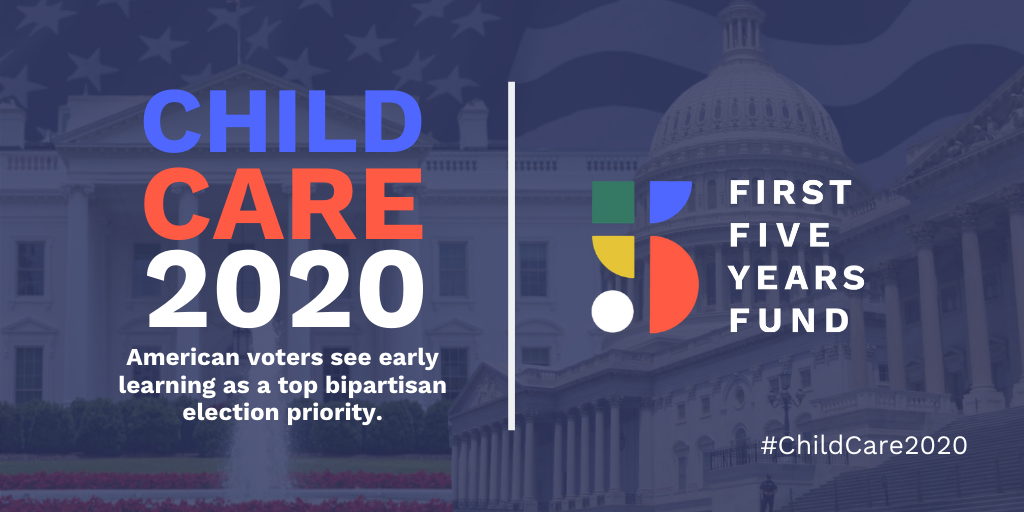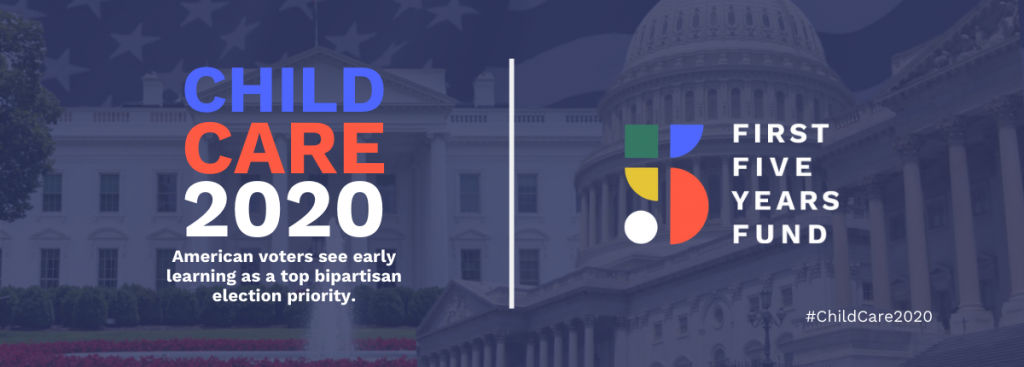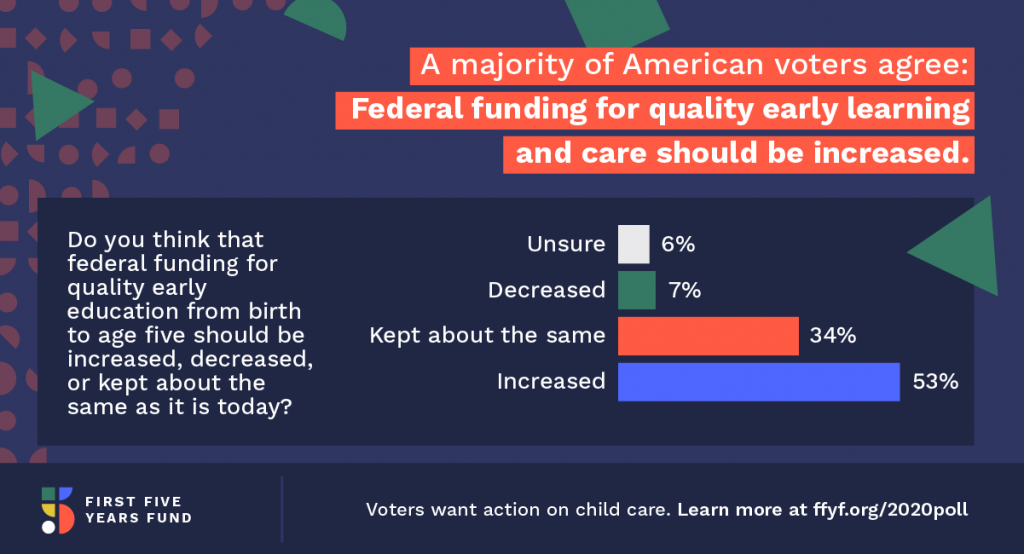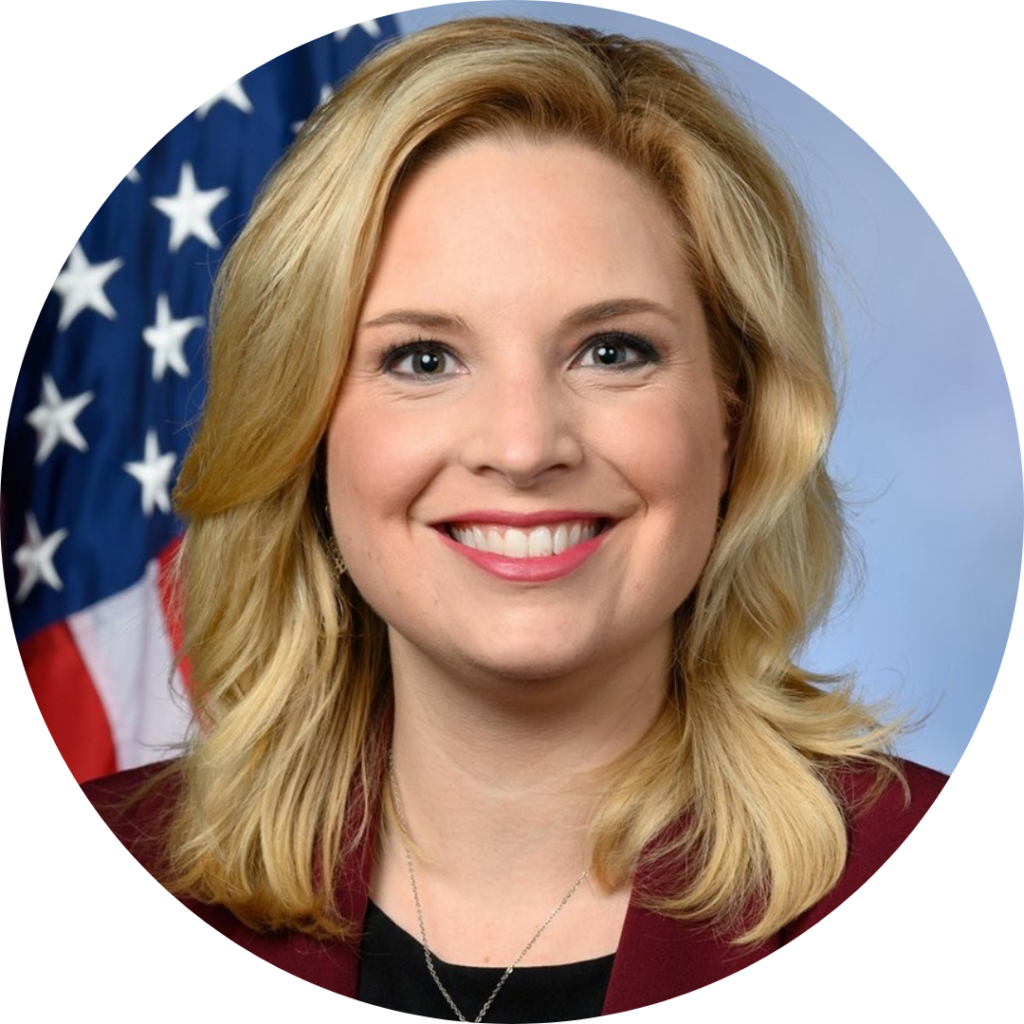A Look Back at Early Learning and Care on the Campaign Trail

During the 2020 elections, early learning and care became a major focal point of candidates and elected officials at all levels of government on both sides of the aisle, with voters increasingly looking to policymakers for solutions to the child care challenges facing working parents.
Never before has the issue of child care received such broad and consistent public attention in a presidential election, in particular, which only served to elevate the issue in races up and down the ballot.
What’s more, Republicans and Democrats running for office clearly understood that voters are paying attention to their positions on early learning and care.
Throughout the election, FFYF worked to harness the unprecedented attention on the issue – intensified by the COVID-19 pandemic and its devastating impact on the child care industry – to ensure candidates understood that child care and early learning isn’t just smart policy, it’s smart politics too.

Democratic Primaries
As the primary season began in June of 2019, it was clear that the concerns of parents, providers, and the communities that depend on quality, affordable child care would make ECE a landmark issue in 2020. Due to the issue’s bipartisan nature, any campaign policy platform from candidates in either party should incorporate plans for ensuring more children from birth through age five – particularly those living in poverty – have access to high-quality early childhood education and care. From a policy perspective, it was important for candidates to understand what a major impact these opportunities would have on children, families, and the economy in the short- and long-term. Politically, however, supporting this issue presented an opportunity for candidates to win over voters in crucial electoral demographic groups, with virtually no risk of alienating other voters. This philosophy informed FFYF’s election work, which included meetings with candidates for president, as well providing data, resources, and messaging guidance for other candidates and 2020 voters alike.
From FFYF’s years of national polling, we know that investing in high-quality early learning and child care opportunities is a top priority for American voters on both sides of the aisle. During the Democratic presidential primary, many candidates already had a strong record or stance on the issue.
FFYF’s election strategy also included creating timely engagement with other advocates in the ECE space to ensure that all candidates were aware of just how important this issue would be to all aspects of American life moving forward. The Democratic primary debates created a unique opportunity to make sure that child care remained a top bipartisan priority. Throughout these debates, several candidates voiced their support for programs like Head Start, expanded access to pre-k, and high quality child care.
Though they may have been representing the same party, the Democratic candidates presented a range of policy ideas and proposals aimed at ensuring greater access to high-quality early learning and care. Yet, when it came to ECE, the candidates were unanimous about the need to do something to improves outcomes for children – particularly those living in poverty.
With the goal of putting child care and early learning at the center of the national stage ahead of the Democratic debate in Michigan, FFYF worked with Denise Smith, the executive director of Educare Flint, to publish an editorial on the importance of early learning in a young child’s development. The widely received op-ed, touted the impact early learning and care programs have had on the children of Flint, Michigan, a city ravaged by years of contaminated water that has forever altered the lives of millions.
General Election
Just as the Democratic party was deciding on a candidate, the world came to a grinding halt as the Coronavirus pandemic took hold, shut down everyday life, and pushed the child care industry to the brink of collapse. Ultimately, former Vice President Joe Biden was chosen as the Democratic party nominee, and shortly thereafter he announced his plan to expand access to high-quality child care and early learning. His child care proposals are part of a larger economic recovery package aimed at investing in a “21st century education and caregiving workforce.”
This issue also featured prominently in both parties’ convention, with Senator Elizabeth Warren speaking from a closed early learning center as a way to showcase the importance of the issue, and the impact the pandemic was having on providers and families, while Ivanka Trump discussed the needs of working parents in primetime during her remarks from the Republican National Convention. To coincide with each convention, FFYF executive director Sarah Rittling joined Every Child Matters and ZERO TO THREE for virtual panel discussions on the opportunities and importance of investing in children and families in the 2020 presidential election. FFYF’s Rittling offered insight on the current state of early learning and care, and to highlight the long-term bipartisan support.
Despite the attention this issue received during the campaign, child care was not a topic of debate between President Donald Trump and former Vice President Joe Biden. The issue itself loomed over many of the topics discussed including the nation’s response to the pandemic and the state of our economy. In an effort to raise awareness of the child care crisis ahead of each debate, FFYF launched comprehensive digital ads in the host cities to ensure the campaigns, debate moderators, and other reporters present would be reminded of the importance of the issue.
To ensure candidates were aware of the devastating impact the Coronavirus pandemic was having on child care, FFYF re-released its presidential briefing books for each campaign with new COVID-19 data and information. With these briefing books, Republican and Democratic campaigns at every level also had access to more recent data-tested messages and ideas for further elevating child care and early learning on the campaign trail in a way that effectively reaches voters across the political spectrum.
In addition to communicating consistently with each campaign, FFYF also kept voters up to date on how to best make their voices heard, ensuring candidates know just how important it is to support high-quality ECE. FFYF compiled the best resources for voters to use as they engaged with candidates running for any office in their state. From sample op-eds to social media posts, voters were encouraged to use the toolkit to amplify their voice and spread this important message.
Several of the election resources provided by FFYF are listed and linked below:

Polling
Meanwhile, FFYF’s annual poll found that COVID-19 pandemic had a real impact on voters’ views of America’s child care system—and the need for a significant public investment in meaningful child care policy solutions for working families and providers. It became clear that lawmakers and candidates for office can no longer view child care as a “nice-to-have” service, when voters overwhelmingly see access to affordable, high-quality child care as an essential service — on par with healthcare and education — that benefits children, families, and the American economy.
Looking Forward
Now, as we look to a new Congress and the incoming Biden administration, we must harness the overwhelming momentum built over recent years to truly address the early care and education needs of children and families by making high-quality early learning and care available and affordable to all families who need it. As President-elect Joe Biden prepares his administration’s top priorities for the next four years, addressing the nation’s child care crisis impacting all families — Democrats and Republicans alike — will be an important way he can begin fulfilling his promise of being a “President for all Americans.”
FFYF is committed to working with the Biden administration, Democratic and Republican leaders in Congress, and a broad range of stakeholders across the country to make this a reality. Over the coming weeks, FFYF will release a Blueprint for Progress with resources and information showcasing the policy and political opportunities to support the care and education of children from birth through age five.
Subscribe to FFYF First Look
Every morning, FFYF reports on the latest child care & early learning news from across the country. Subscribe and take 5 minutes to know what's happening in early childhood education.



